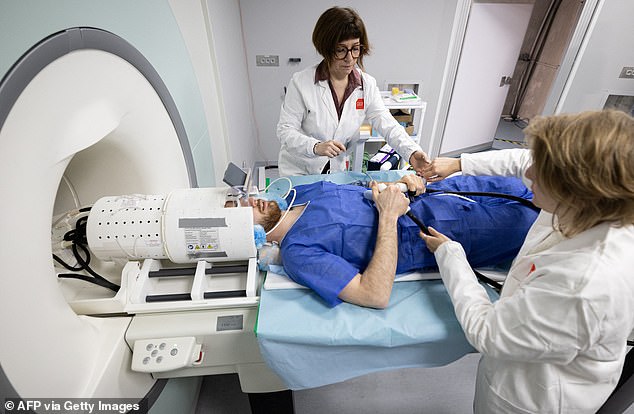
New Breakthrough in Predicting Mortality: Simple Test Estimates Lifespan with High Accuracy
MRI Brain Scans in Your 40s Can Predict Aging Speed and Lifespan
A groundbreaking study by Duke University reveals that a single MRI brain scan in your 40s can predict how fast your body is aging biologically, offering insights into future health risks like dementia, heart disease, and lifespan. The tool, named DunedinPACN, analyzes brain features such as gray matter volume, hippocampus size, and ventricle enlargement to calculate your "Pace of Aging."
Key Findings
- 18% higher risk of chronic diseases (e.g., heart attacks, lung disease) for fast agers.
- 40% higher mortality risk within a decade compared to slow agers.
- 60% increased likelihood of dementia in later life for those aging faster.

MRI scans reveal physical brain changes linked to accelerated aging, such as reduced hippocampal volume (critical for memory).
How It Works
The tool was trained on 45-year-olds from the Dunedin Study, tracking brain changes over decades. Using software FreeSurfer, it measures 315 brain features, including cortical thickness and fluid-filled ventricle size. Smaller hippocampi and larger ventricles—common in Alzheimer’s—signal faster aging.
“What’s compelling is how brain aging mirrors body aging,” said lead researcher Ahmad Hariri. Unlike other “aging clocks” based on mixed-age data, this focuses on midlife, capturing early decline before symptoms emerge.

A smaller hippocampus (left) and enlarged ventricles (right) indicate advanced brain aging.
Universal Impact
Results held across races and income levels, including diverse groups from Latin America to the UK. Fast agers showed worse cognitive test scores and earlier memory decline, while slow agers had “younger” brains—thicker cortices and healthier tissue—resembling a 30-year-old’s brain at 45.

Fast agers face higher dementia risk due to accelerated brain tissue loss.
Why It Matters
Early detection allows lifestyle interventions (diet, exercise) to slow aging. “Our jaws dropped seeing how clearly this predicts disease,” Hariri noted. With dementia cases rising, such tools could revolutionize preventive healthcare, extending healthspan and longevity.
In summary, your 40s brain scan might just be the crystal ball for healthier aging—offering a chance to rewrite your health future.


